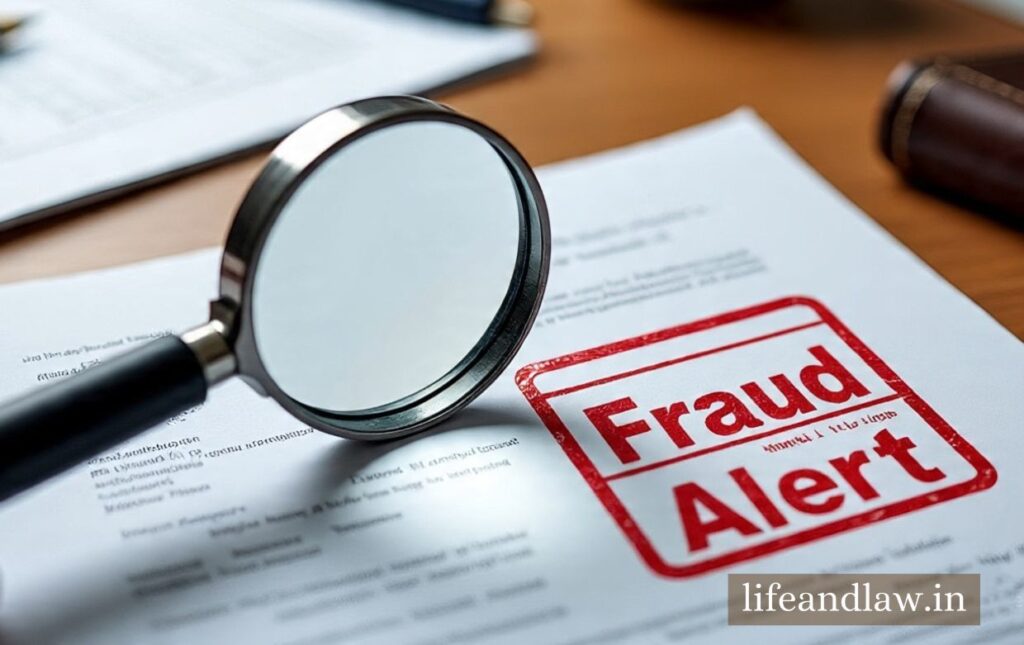Trending

Property purchases have a significant impact on both one’s financial stability and emotional security. Given the long-term implications, it is critical that factors such as ownership transfer, sale agreements, and legal terms are properly documented and performed. The Indian Transfer of Property Act, 1882 establishes defined rights and duties for both the seller and the buyer, ensuring that transactions are completed legally and transparently.
However, real estate fraud, such as disguised loans or the selling of mortgaged houses, remains a severe issue. Buyers frequently suffer significant financial and legal damages owing to a lack of information. The aim of this article is to explain both parties’ legal rights and duties, allowing readers to avoid fraud and execute property transactions with more confidence and legal clarity.
According to the Transfer of Property Act, 1882, a seller transfers ownership of immovable property to the buyer for a predetermined sum. The seller must guarantee that all documentation is in order and the property is free of legal issues.
Sellers must disclose any known problems in the property or title that the buyer would not discover with ordinary care.
At the buyer’s request, the seller must provide access to all applicable title papers.
The seller must answer truthfully to the buyer’s questions concerning the property and ownership.
Once payment is paid, the seller must facilitate a prompt transfer of ownership.
Between signing the selling agreement and the final handover, the seller must responsibly maintain the property.
The seller must transfer possession to the buyer or their representative.
The seller is responsible for paying any taxes, levies, or rent due until the date of sale.
By signing the selling agreement, the seller indicates that they have the legal right and power to sell the property.
All original title documents must be handed over once the whole payment has been paid.
The seller may claim rent and profits until ownership is transferred to the buyer..
If full payment is not received, the seller may place a charge on the property until it is paid.
The buyer pays the agreed-upon amount for immovable property. They must follow legal requirements and verify documents both during and after the transaction.
If the buyer is aware of a material fact that impacts the seller’s interest, they must disclose it.
The buyer must pay the whole purchase price at the specified time and location.
Once ownership is transferred, the buyer is liable for any damage or depreciation, unless inflicted by the seller.
Following the transfer, the buyer is responsible for paying property taxes, rent, and any other property-related duties.
Following the ownership transfer, the buyer is entitled to:
Benefits of any enhancements made to the property
Increase in property value
Rental income or profit.
If the seller does not transfer ownership after receiving full payment, the buyer may:
Claim the property
Demand a refund plus interest
Seek recompense for legal fees
Property sales are a legally sensitive procedure. Legal counsel is required to ensure a secure and smooth transaction. A thorough awareness of legislation and documentation aids in avoiding mistakes and fraud. Buyers and sellers are advised to contact competent property lawyers at www.asmlegalservices or www.lifeandlaw.in.
Ensure that the property has a clear title and is free of encumbrances or disputes.
Engage a lawyer to review paperwork and confirm that the agreement is legally binding.
Register the transaction with the sub-registrar to ensure that it is legally binding and valid.
Both sides should be honest and disclose all facts and records.
Before you buy a home, check to see whether it has any liens, mortgages, or claims.
Compare the property’s price to current market rates to prevent overpaying or getting deceived.
To legally authenticate the transaction, sign the agreement in front of reliable witnesses.
Investigate previous ownership to ensure a clear and uninterrupted title.
Ensure that all documents, once signed, are properly registered and confirmed with authorities.
Verify land use, zoning rights, and future development laws with the authorities.
Do not rely on oral agreements. Ensure that all terms are documented and legally recorded.
Before closing the transaction, confirm the legitimacy of the sale deeds, tax receipts, approvals, and title documents.
Both the seller and the buyer are aware of their legal rights and responsibilities, which assures fair, transparent, and dispute-free property transactions. Both parties can protect themselves from potential fraud and legal problems by carrying out their responsibilities, getting legal counsel, confirming documents, and remaining transparent.
For expert advice, always contact experienced property lawyers like Adv. Abdul Mulla at www.asmlegalservices or www.lifeandlaw.in. Legal compliance, due diligence, and correct documentation are essential for safe and secure property investments.
Adv. Abdul Mulla (Mob. No. 937 007 2022) is a seasoned legal professional with over 18 years of experience in advocacy, specializing in diverse areas of law, including Real Estate and Property Law, Matrimonial and Divorce Matters, Litigation and Dispute Resolution, and Will and Succession Planning. read more….
Copyright BlazeThemes. 2025